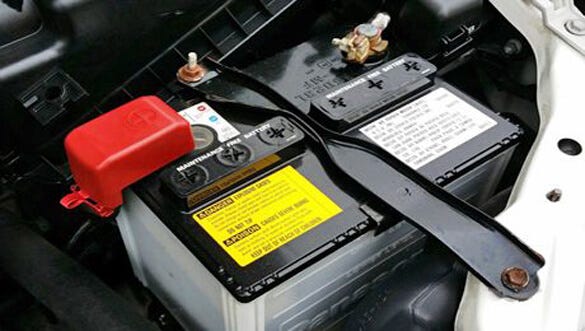Why you should ignore the prorated warranty coverage when shopping for a new car battery
Do you own a car that's more than a couple of years old?
If so, chances are you'll have to replace the battery with a new one in the not-so-distant future.
When that time comes you'll have to make some decisions when choosing a replacement battery.
One of those decisions is the type of warranty coverage you want to have on the new battery.
Most car batteries come with two types of warranty coverage:
1 - Free Replacement Warranty
2 - Prorated Replacement Warranty
If you see a battery that has the warranty period marked as 24/72, that means the battery will be replaced at no charge if it goes bad within the first 24 months.
However, if the battery goes bad at any point between the 25th and 72nd months you'll have to pay a prorated fee in order to receive the replacement battery.
And here's the kicker: That prorated amount WILL be a large percentage of the original purchase price.
Let's look at an example...
If a 24/72 battery goes bad on the last day of the 24th month, you'll receive a brand new replacement battery for free. Pretty cool, right?
However, if that same battery battery goes bad on the first day of the 25th month (only one day later), you'll have to pay almost half the original cost of the battery to receive a replacement.
What's more, the prorated amount you'll have to pay for a replacement battery under the prorated replacement warranty period goes up each and every month.
In fact, if the battery has to be replaced at any time during the last year of the prorated warranty period you'll end up paying just a few bucks less than you'd pay if you purchased a new battery outright!
This is why you need to largely ignore a car battery's prorated warranty coverage and concentrate on the free replacement warranty period instead.
Let's say you're shopping for a car battery and you see two similar batteries with the following warranty designations:
a) 36/60
b) 24/72
If you had to choose between those two batteries the best choice would be the first one (36/60) even though the total warranty coverage of the second battery is a full year longer.
Why? Simple math and logic...
According to data from Nationwide Insurance Company, most car batteries last anywhere from 3 to 5 years.
That means there's a great chance that any warranty coverage that extends past 60 months is going to be completely wasted.
What's more, even if a battery manages to make it into the last year or two of prorated coverage, the amount of the "credit" you'll receive towards the purchase of a replacement battery will almost certainly be negligible.
And now, here's the kicker...
Having worked for a major automobile battery manufacturer, I can tell you that the batteries that come with longer prorated replacement terms are the very same batteries that come with shorter prorated replacement terms. The only real difference is the label they glue onto it.
Truth be told, the amount you pay to get the longer prorated replacement period is nothing more than an extended warranty. And as you know after reading the above, it's a pretty expensive extended warranty that doesn't provide a lot in the way of benefits.
Bottom line: Battery manufacturers love giving their more expensive batteries a long prorated warranty period to build confidence in those more profitable batteries.
But when it comes time to purchase a battery, it's best to ignore the prorated warranty coverage regardless of the length of its term and choose a battery based upon the free replacement warranty period instead.
Like this post? If so, please subscribe to receive a new post of inspiration in your email inbox every day.




